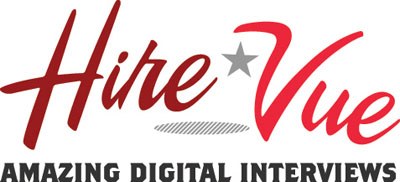HireVue: A Digital Platform for Recruiting

Digital recruiting platform HireVue is disrupting traditional recruiting processes
 Recruiting for a new job is stressful – certainly for the candidates under evaluation, but also for the HR managers tasked with coordinating the process. For large employers like Delta or Goldman Sachs, the process of hiring can include hosting info sessions, collecting and sorting resumes, coordinating interview schedules, arranging flights and hotels, and monitoring evaluation rubrics for fairness and accuracy. For employers like McKinsey and BCG, who have both rigorous interview processes and high turnover, recruiting constitutes the companies’ largest line-item expense outside of compensation.
Recruiting for a new job is stressful – certainly for the candidates under evaluation, but also for the HR managers tasked with coordinating the process. For large employers like Delta or Goldman Sachs, the process of hiring can include hosting info sessions, collecting and sorting resumes, coordinating interview schedules, arranging flights and hotels, and monitoring evaluation rubrics for fairness and accuracy. For employers like McKinsey and BCG, who have both rigorous interview processes and high turnover, recruiting constitutes the companies’ largest line-item expense outside of compensation.
 Enter HireVue, a Utah-based digital recruiting platform that is disrupting traditional recruiting processes. Initially, HireVue’s key insight was that, when an interviewer meets with a candidate, oftentimes he or she knows within the first 5 minutes whether or not the candidate is likely to be hired. Even in the case of “quick rejects,” the employer still incurs all of the costs of scheduling, airfare, meals, hotels, ground transportation, etc. Perhaps even more annoying, the interviewer typically feels obligated to sit through the entire scheduled duration of the interview, wasting valuable time that might otherwise be spent interviewing more promising candidates.
Enter HireVue, a Utah-based digital recruiting platform that is disrupting traditional recruiting processes. Initially, HireVue’s key insight was that, when an interviewer meets with a candidate, oftentimes he or she knows within the first 5 minutes whether or not the candidate is likely to be hired. Even in the case of “quick rejects,” the employer still incurs all of the costs of scheduling, airfare, meals, hotels, ground transportation, etc. Perhaps even more annoying, the interviewer typically feels obligated to sit through the entire scheduled duration of the interview, wasting valuable time that might otherwise be spent interviewing more promising candidates.
HireVue solves this problem by digitally decoupling the interview questions from the answers. Employers sign-up on the HireVue platform to post job openings, as well as pre-recorded video interview questions (e.g. “Tell me about a time when you demonstrated leadership”). Interested candidates then log-in to HireVue and upload their applications, resumes, writing samples, and any other materials the employer may have asked for. The employer then selects candidates to digitally interview. Invited candidates log back in (at a time of their choosing), access the video questions, and use a webcam to answer the questions in a predetermined amount of time (usually 1-5 minutes). Employers then log back in, review the video interview submissions, and efficiently sort through them. Recruiting costs and logistics are kept to a bare minimum.
HireVue has signed-up hundreds of customers to-date, including Dunkin Donuts, Delta, Red Bull, HBO, Vodafone, and the MLB (sadly, my application to the Red Sox was quickly rejected). The most obvious customers for HireVue are large enterprises who have bulky, programmatic recruiting processes. These companies engage HireVue to streamline the first one or two rounds of interviewing – which are typically the highest-volume and the most expensive. Many employer clients still fly candidates out for “final rounds” or “sell weekends,” in which the employer’s primary objective is wooing the candidate, rather than assessing him or her. HireVue is also useful for smaller local employers who want to reach a broader audience of candidates, or want to leverage larger employers’ experience in “what to look for” when hiring for a specific position.
As HireVue has accumulated tens of thousands of interviews on its platform, it has begun to layer-on artificial intelligence, adding further value to its employer clients, and creating a competitive moat against imitation. Over time, HireVue has tracked the performance reviews of candidates who were hired through its platform. It is now able to match certain audio/visual cues from candidates’ recorded interviews with traits and characteristics that are predictive of success within a specific company. For example, if Southwest Airlines is hiring for a front-line customer service position, HireVue can pre-screen the video submissions to identify candidates who exhibit warmth and empathy, and weed out those who seem disagreeable or easily perturbed.
Simultaneously, HireVue is using its platform and accumulated experience to expand into a coaching product for individual candidates and employees. Individuals seeking feedback on their interviewing or sales presentation skills can sign-up and solicit feedback from an AI coach.
The platform generates both direct and indirect network effects for both employers and candidates. Every time a new employer uses HireVue for recruiting, not only do individual candidates have access to more job listings, but the platform learns more about what characteristics are predictive of success for that industry and job title – making the platform “smarter” in the service of its employer clients. Conversely, every time a candidate applies for a job and conducts an interview through HireVue, not only do employers get access to a new candidate, the platform gathers additional data on the correlation between audio/visual cues and success, enabling a smarter product for both employer clients and individual coaching clients.
The company’s trajectory and promise has not gone unnoticed. HireVue has attracted investments from Clayton Christensen-founded hedge fund Rose Park Advisors, as well as subsequent investments from Sequoia Capital and Technology Crossover Ventures (TCV), among others.
Disclosure: The author was an employee of Rose Park Advisors from 2015 to 2016.



Great post, Cameron. (And I’m not just saying this because I think it was your team that beat us in Game 1 of the platforms simulation.. 🙂
Curious what the competitive landscape looks like for these firms and how they’re differentiating amongst themselves in terms of data ownership. I can imagine there’s a point at which the one dominant HR platform (possibly HireVue) owns all the data across recruiting employers and thus is able to gather so many insights re: predicting high potential hires, etc. There’s a clear value proposition for employers to use HireVue, but I wonder how many of them are concerned that HireVue will ultimately own all parts of their HR function and may instead be choosing to build their own capabilities in-house.
Thanks for the post, Cameron — this is great. The value proposition is very clear, and as you said, it’s probably worth quite a bit to big enterprises, particularly those with high turnover. I had no idea first-round interviews were sufficiently rules-based to be conducted by a piece of software (my assumption was that each interviewer tailored the interview depending on the interviewee’s experience and qualifications). Concerning the network effects, as the first commenter pointed out, a case could be made for a high level of multi-homing among both job seekers and employers. I wonder if HireVue could strengthen network effects and/or reduce multi-homing by partnering with LinkedIn.